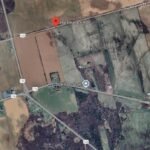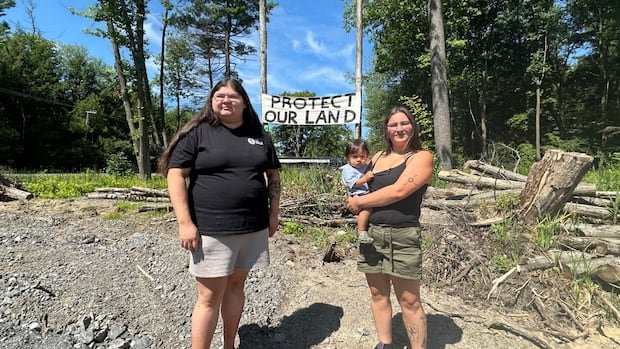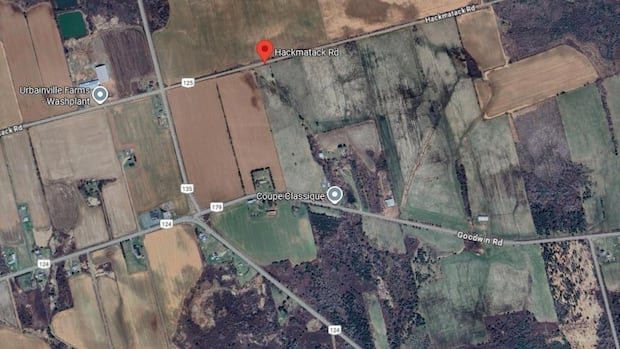Two women climb over felled pine trees, some branches still green with needles, following a deep trench cut into the forest floor.
A little under a kilometre away, this forest connects to the old front lines of the 1990 Oka Crisis, or the siege of Kanehsatà:ke.
The trench, roughly three feet deep, stretches out from the back of Big Chief’s Variety, a five-storey cannabis megastore that sits along Quebec’s Route 344 in Kanehsatà:ke, a Kanien’kehá:ka (Mohawk) territory about 60 kilometres southwest of Montreal.
The trench and downed trees are the result of recent construction work by the owner of Big Chief’s Variety, say Kawisaienhne Albany, 27, and Karihohetstha Cupples, 23.
It’s part of a widespread and relentless construction boom fuelled by the lucrative cannabis industry — one that the women say is reshaping the community’s lands and shorelines, while aggravating long-simmering internal tensions.
“The cannabis shops, they came here and they just have brought a lot of destruction,” said Albany.
“What we fought for in ’90 is what we’re still fighting for today,” said Cupples. “But now, it’s not against the golf course, it’s not against Oka — it’s against our own people … whose minds have been infected by greed.”
In the summer of 1990, the Canadian military laid siege to Kanehsatà:ke after community members tried to stop a golf course expansion from razing an area known as The Pines and desecrating their graveyard. A botched Sûreté du Québec (SQ) raid on the blockade triggered a 78-day armed standoff.
After the tanks rolled out, Kanehsatà:ke was left on its own to find its footing. With the majority of its land-claim matters remaining unresolved, and the conflict casting a long shadow, its band council struggled to generate a sustainable economy.
While tobacco stores sprung up and brought some wealth to the community, Canada’s legalization of cannabis in 2018 opened a new realm of opportunity. Today, dozens of cannabis shops crowd Route 344, which cuts through Kanehsatà:ke.
Some are just small, shack-like stores. Others are hulking buildings, with electronic billboards and placards offering more than just cheap weed; they advertise magic mushrooms, booze, slot machines and gasoline.
Some of these cannabis megastores host parties and events that have attracted floods of outsiders, at times overwhelming the territory, which has a population of about 1,500 to 1,700 people.
Serge Simon, whose family runs two small cannabis shops, built off years of selling tobacco, said the community now faces disaster.
“Eventually it’s going to implode, because they’re going too far, too fast,” said Simon, who spent 10 years as grand chief, up until 2021. He’s running again now, one of three candidates in an recently delayed election.
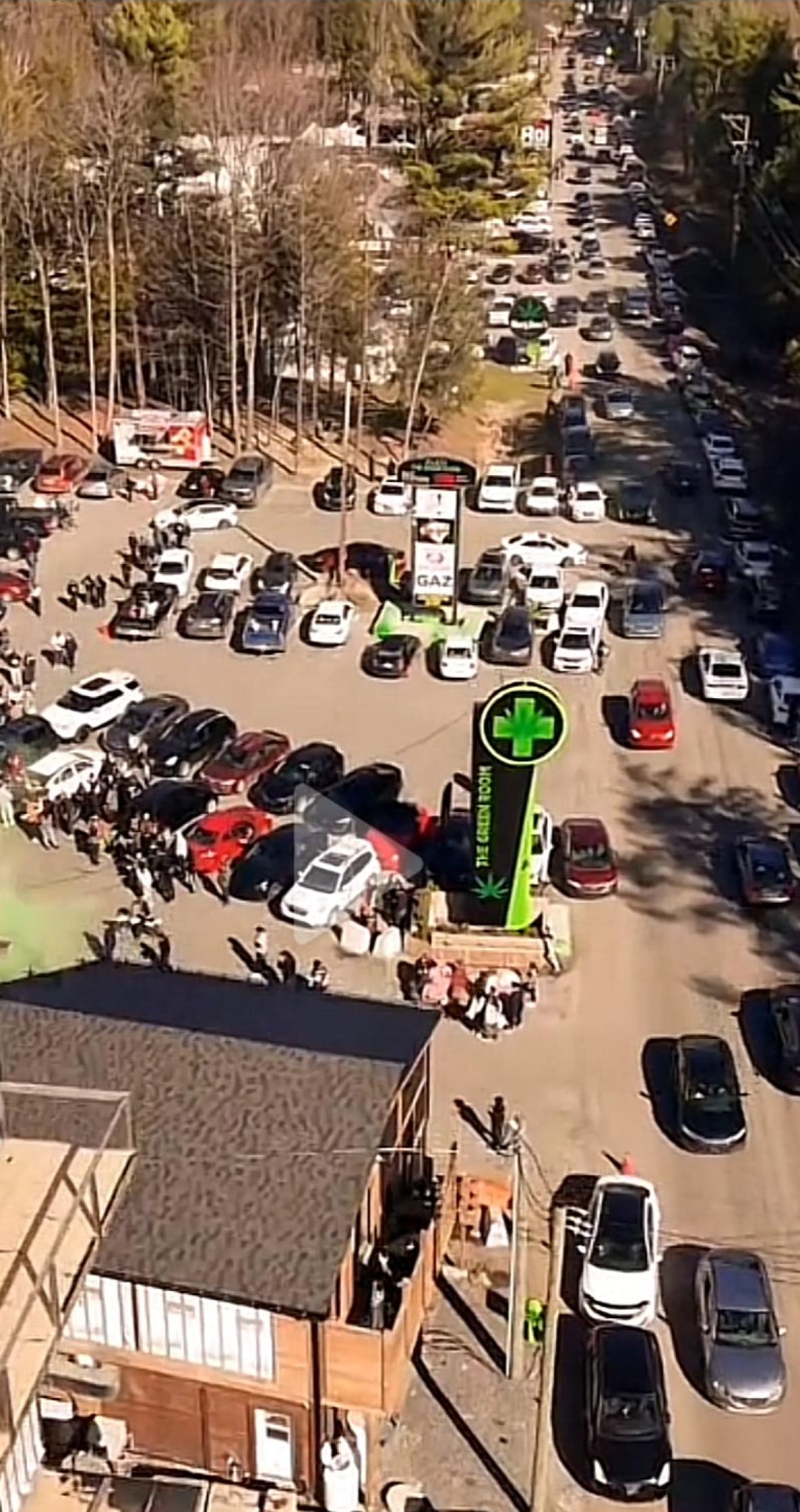
Kanehsatà:ke currently has no internal laws to govern these megastores, which operate outside federal and provincial licensing frameworks.
The territory also doesn’t have its own police force; it was disbanded in 2004 after a disastrous, federally funded police raid. The SQ regularly patrols the highway, but typically only gets involved in serious incidents.
Community members told CBC News that recent conflicts over cannabis operations have become violent, sometimes resulting in middle-of-the-night arson attacks. Local political leaders say organized crime has infiltrated some cannabis operations on the territory.
“The majority of them are very good people. It’s their partners, some of them, that bring in this criminal element,” said Victor Bonspille, the previous grand chief who is seeking another term.
“I’m not going to penalize them for wanting to get ahead.… A lot of us grew up with very little.”
Environment under pressure
Last month, following a march commemorating the Oka Crisis, a group of women raised a white-canvas sign with black lettering that read: “Protect Our Land.”
It was hand-painted by Cupples, a nod to her grandmother, Louise Gagne, who painted one of the iconic signs from that summer conflict 35 years ago, asking in both French and English, “Are you aware that this is Mohawk territory?”
Cupples and others were staking out a new front line of sorts, on a forested plot they claimed back in 2020, to protect it from growing cannabis development that has since boomed. “If we’re not there to protect the physical land itself, nature can’t continue,” she said.
The plot sits between Big Chief’s Variety on one side and AAAA Cannabis on the other, connecting to a swath of forest that runs behind several large cannabis operations along the eastern portion of Kanehsatà:ke.
Albany said they’ve faced constant pressure from community members to give up the plot for development. “I think a lot of them don’t understand what a preservation area is — you don’t touch it, you don’t need to use it,” she said.
As they survey the first trench, Albany and Cupples find another one, appearing to run from another cannabis megastore sitting next to Big Chief’s called the Green Room. It holds dark, stagnant water, with the stink of sewage.
“All I feel is anger because, it’s like, how could you do this?” said Albany.
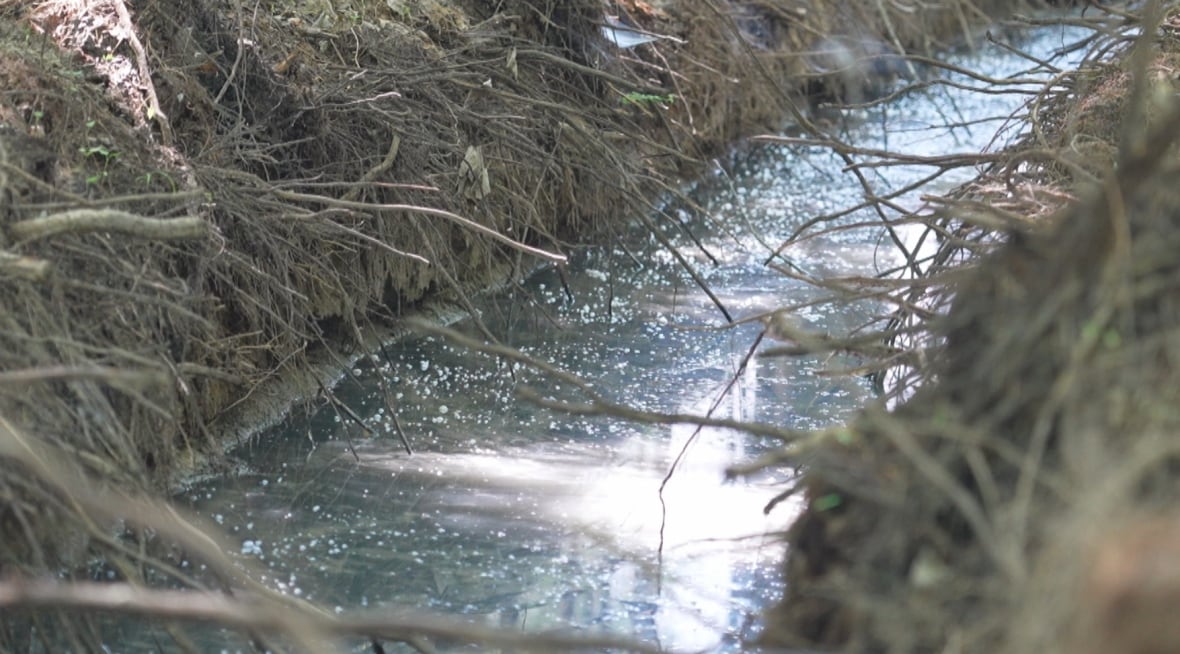
Green Room owner Gary Gabriel says the dark water comes from his septic system’s overflow. “You’re allowed to do that here,” he said. “I got the same thing at my house. Everybody has overflow around here.”
Gabriel said he’s installed a new septic system to stop the discharge, and he’ll soon be cleaning up the existing overflow. He’s also pledged to stop tree-cutting in the surrounding forest.
CBC News made three in-person requests for an interview with Big Chief’s owner Joshua Smith-Gabriel, but was turned down. Smith-Gabriel is not directly related to Gary Gabriel.
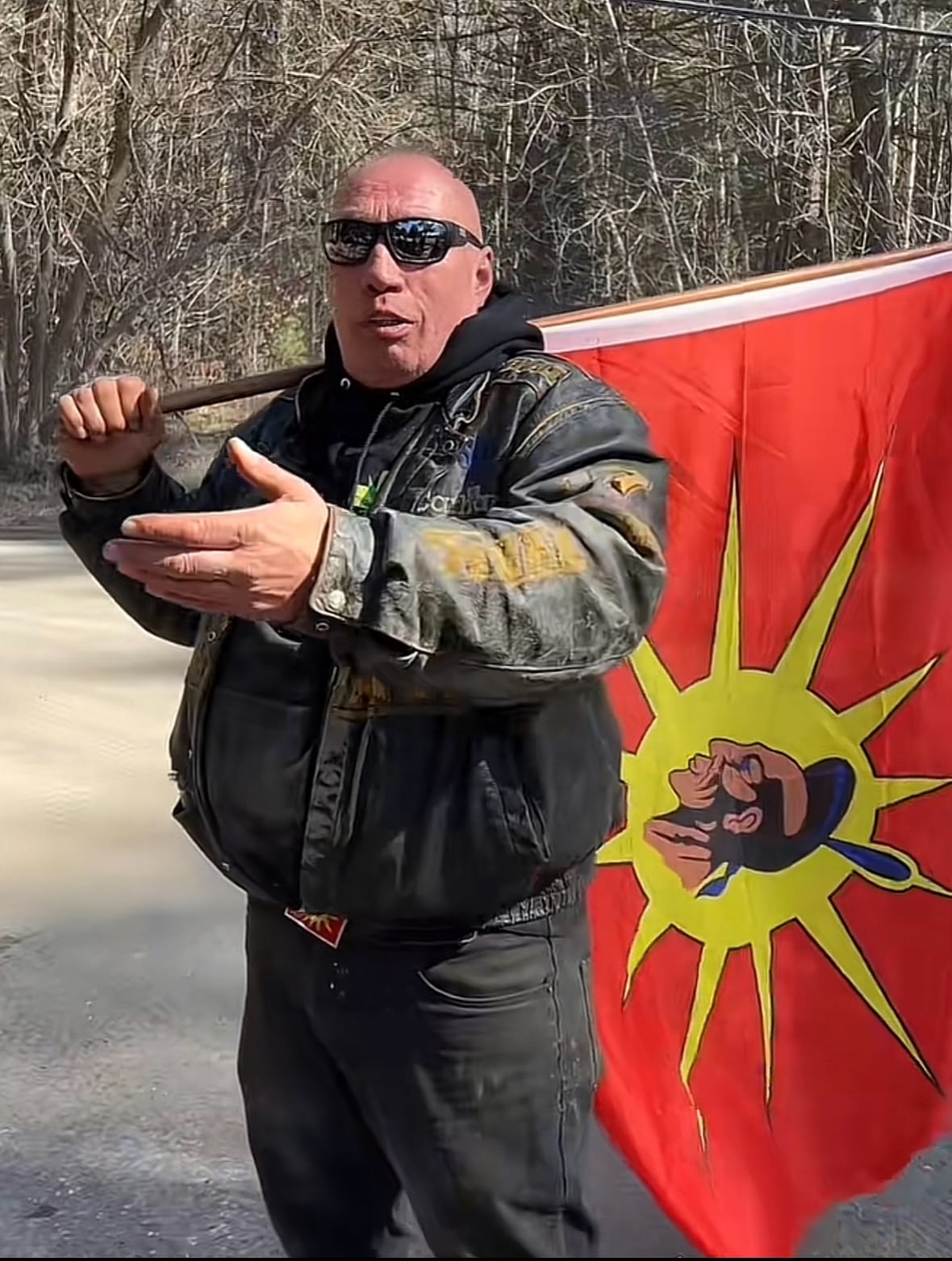
Construction on dumped soil along the shore
The environmental impact of the cannabis boom extends beyond Kanehsatà:ke’s forests, said Cupples, with stores and gas stations also “taking up our shorelines” along Lake of Two Mountains.
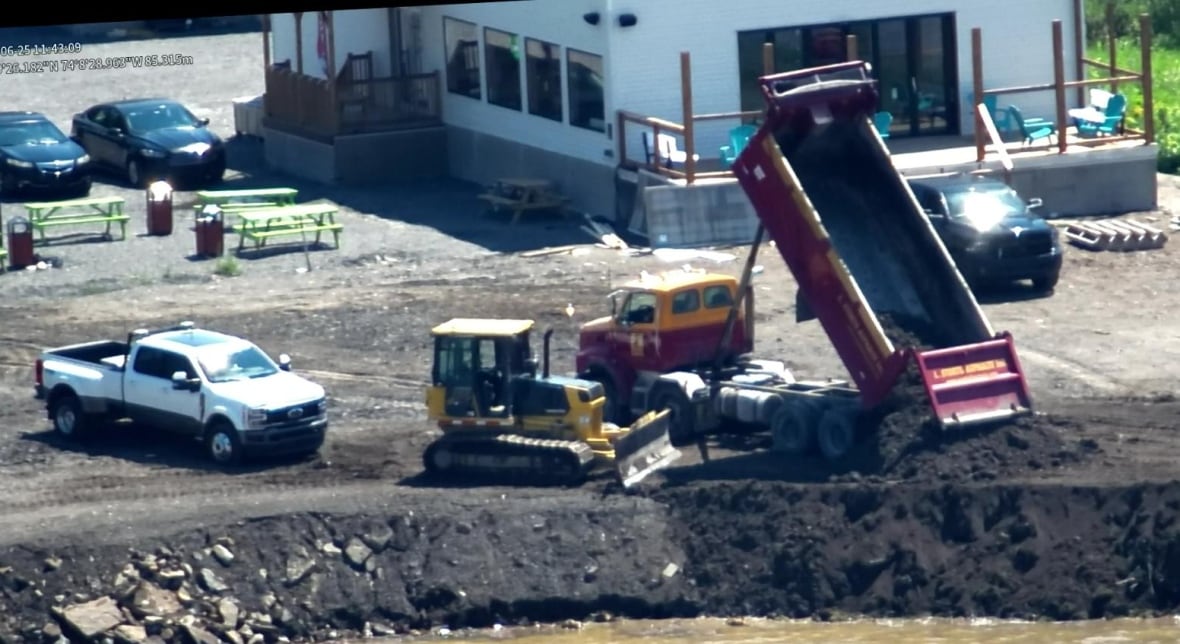
Aerial footage filed by the provincial government in Quebec Superior Court show two other cannabis megastores — High Times and Golden Star — allegedly using illegally dumped soil to build their properties out along the shoreline.
An injunction filed by Quebec to stop illegal dumping on the territory — mainly trucked in from Montreal-area construction sites — names Kanehsatà:ke members Barry Bonspille, owner of Golden Star, and Robert Gabriel, owner of the High Times, among 17 individuals and businesses total.
Smith-Gabriel is also named for allegedly cutting trees on another property he owns along the shoreline, where he built a gas station.
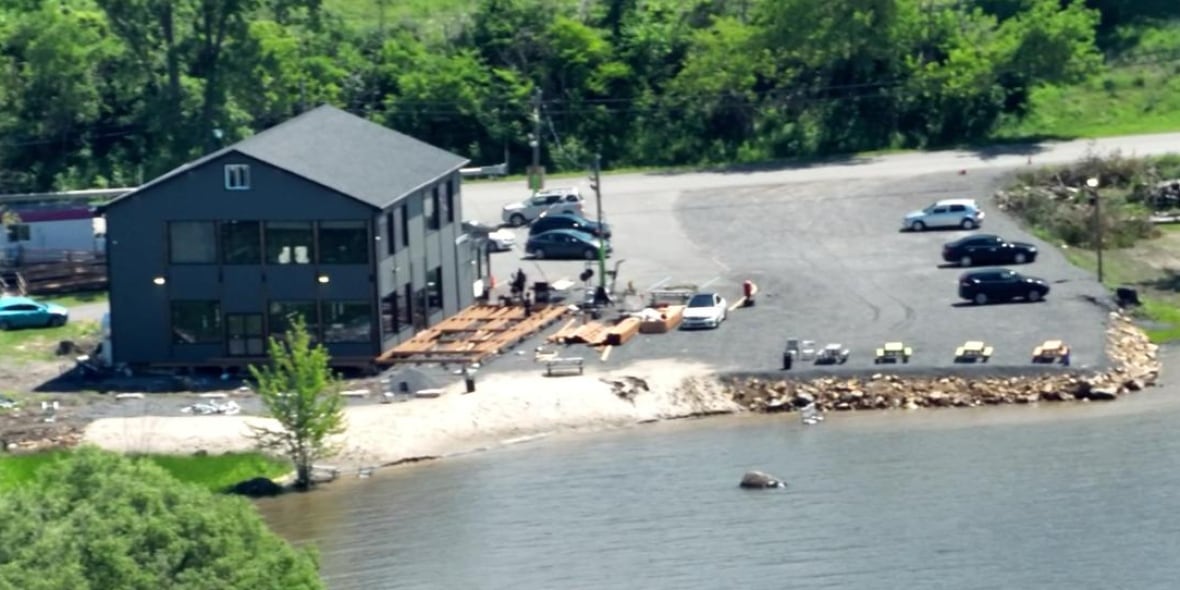
Barry Bonspille, who is the brother of Victor Bonspille, could not be reached for comment, but he recently told Montreal-based independent journalism outlet the Rover that all “material brought to my property was above board.”
Robert Gabriel, the owner of High Times, could not be reached for comment. He told an environmental investigator he used “clean” rock from a quarry to build out the shoreline for a parking lot.
“This is our land and no outside government will tell us what to do with it,” said Gabriel, according to a handwritten transcript of the interview filed in court. Robert Gabriel is the brother of Gary Gabriel.
Kanehsatà:ke is not technically a reserve; it sits on Crown lands held exclusively for the Kanien’kehá:ka community’s use. The traditional territory once spread across 689 square kilometres.Over time, it’s been whittled down to 12 square kilometres.
A number of cannabis storefronts in the community sit on communal lands seized by Kanehsatà:ke members over the years, as the band government has never been able to implement laws to regulate land use on the territory.
More than three decades of intense and persistent internal political divisions within Kanehsatà:ke has hampered the ability of the community — with a band membership of about 2,700 people — to establish a strong governance system.
It is currently in a state of political uncertainty after a planned Aug. 2 election was cancelled at the 11th hour after a contractor hired to oversee the vote flagged a number of issues that it said would have compromised the election.
Indigenous Services Canada says it’s up to the band to sort out how to hold another election. In a statement, the federal department said it would “continue to monitor the situation to ensure the delivery of essential programs and services.”
All three grand chief candidates told CBC News full community buy-in is needed to regulate the territory’s cannabis industry.
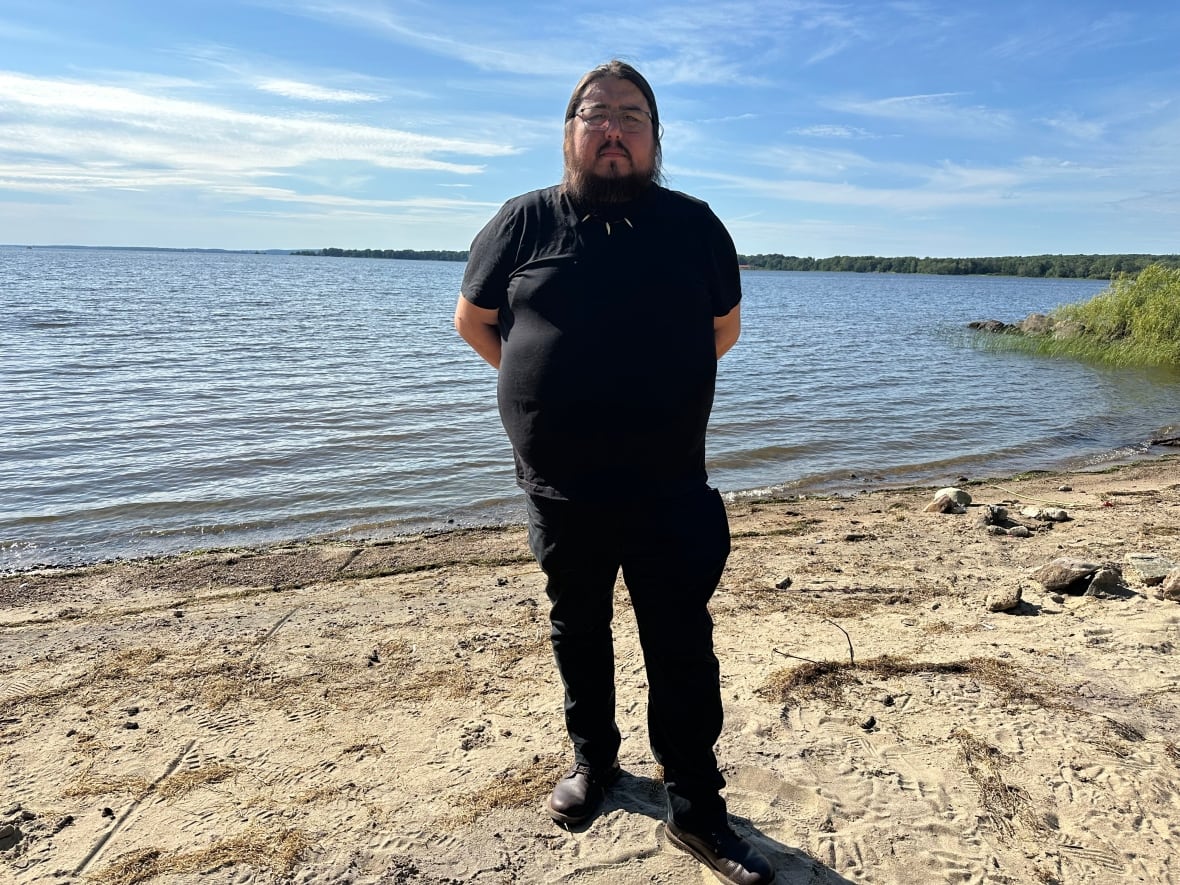
Ottawa aware of organized crime concerns
Brant Etienne, another grand chief candidate, said the band council ultimately needs to establish control, even if it means facing a potentially dangerous backlash from the organized crime groups he says operate in the territory.
“Even if our local population wants to change, you’re going to have to contend with the likes of the Hells Angels [and] the Mafia, whether that’s Italian Mafia, Lebanese Mafia, Haitian Mafia,” said Etienne.
“I’ve accepted the fact that I might get hurt in this.… Somebody has to stand up.”
In an emailed statement, the office of Public Safety Minister Gary Anandasangaree said it was “aware of concerns … regarding the presence of organized crime” in Kanehsatà:ke.
The RCMP’s Quebec C-Division would not confirm or deny whether it was aware of organized crime elements operating on the territory. “Anyone with information on this subject is invited to contact the RCMP,” it said in an email.
The SQ said it could not comment specifically on Kanehsatà:ke, but wrote in an emailed statement that “organized crime has no borders” and that there may be “criminal activities,” as in other regions of Quebec.
Gary Gabriel said he thinks the organized crime claims are overblown. As sole owner of the Green Room, he said if he found out anyone connected to organized crime worked for him, he’d “throw them out” immediately.
“I don’t know who works for the other stores,” he added.
Gabriel said he employs more than 80 people from in and outside of Kanehsatà:ke, noting many of the territory’s families are benefiting from the wealth generated by cannabis. “We got everybody off welfare,” he said.
As for Cupples and Albany, they say the bad brought by the cannabis boom outweighs the good — and that they have no faith in the band council system to find a solution.
Instead, their faith rests on something deeper.
“Our ancestors are standing with us, too, and they are protecting us. I do believe that,” said Albany.
“It happened in ’90, that they were there with us. It’s going to happen again,” said Cupples.



